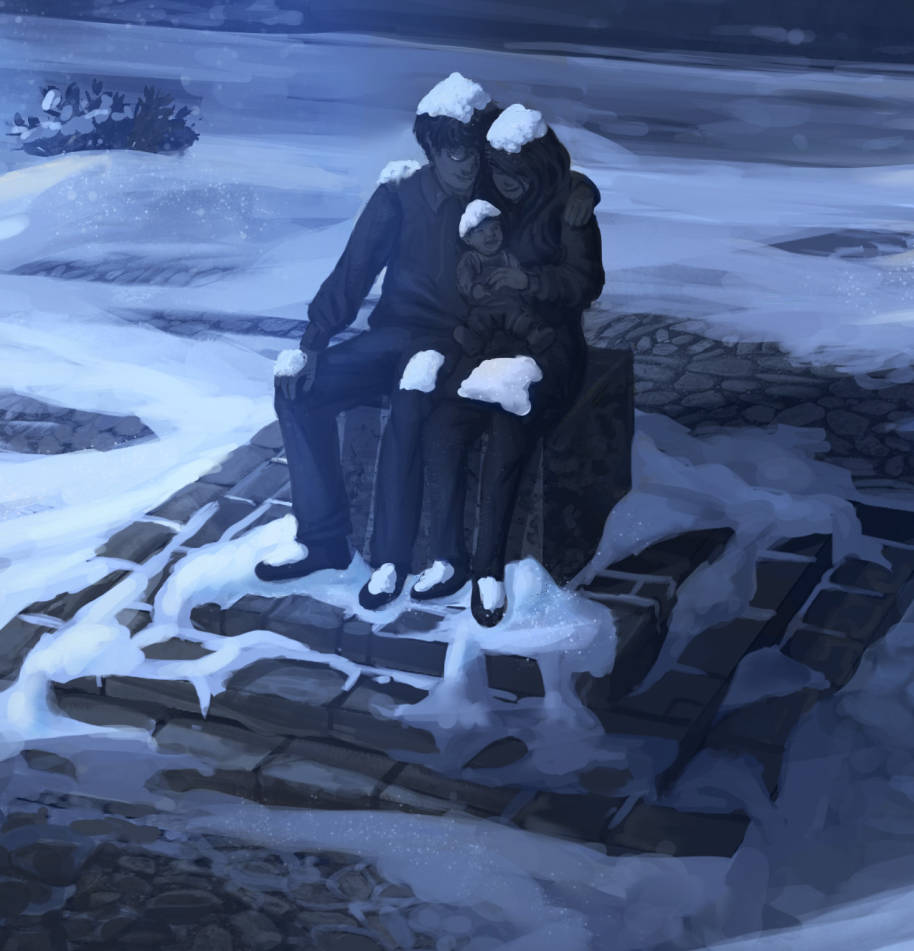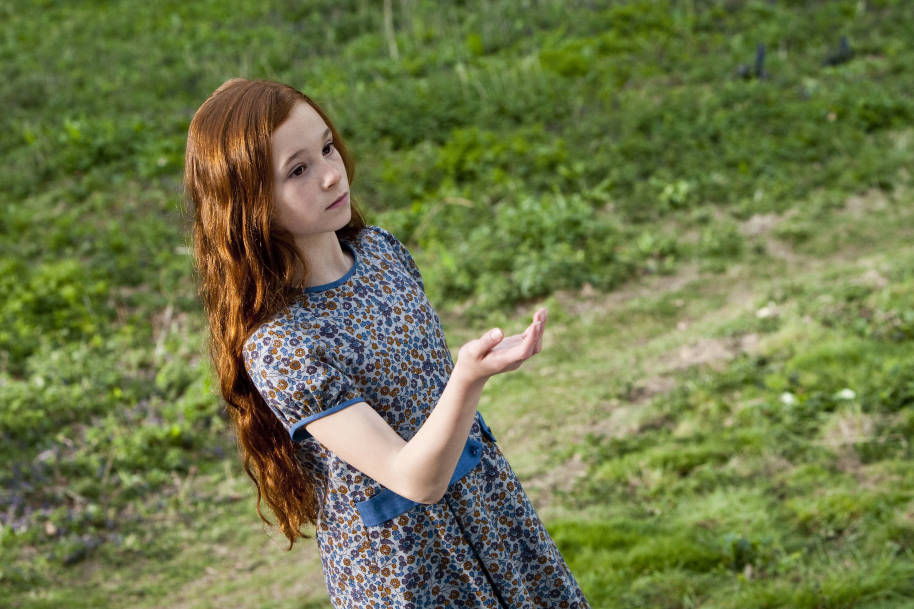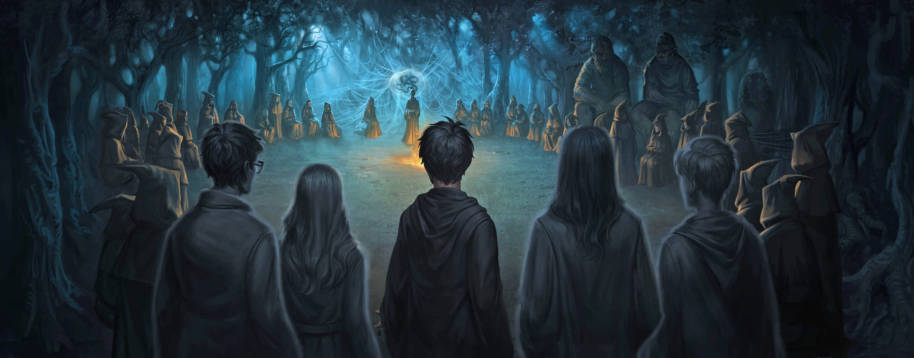
‘You think I’m a fool?’ demanded Harry.
‘No, I think you’re like James,’ said Lupin, ‘who would have regarded it as the height of dishonour to mistrust his friends.’
Harry Potter and the Deathly Hallows
The nature vs nurture argument is always up for debate, but in the case of Harry Potter – despite not growing up with James or Lily – he was eerily like them without their physical influence. From the very brief glimpses into his parents’ childhoods we can piece together what their personalities were like, and how Harry naturally followed in their footsteps. And it wasn’t just with Lily’s eyes or James’s brilliant Quidditch skills, either.
James’s attitude

Quite a few older characters were quick to point out that Harry’s personality reminded them of James. In the cases of Dumbledore, Sirius and Lupin, this observation was made fondly. In the case of Snape, he wasn’t exactly being sentimental.
‘How extraordinarily like your father you are, Potter,’ Snape said suddenly, his eyes glinting. ‘He, too, was exceedingly arrogant. A small amount of talent on the Quidditch pitch made him think he was a cut above the rest of us, too. Strutting around the place with his friends and admirers ... the resemblance between you is uncanny.’
Harry Potter and the Prisoner of Azkaban
Okay, so we all know Snape had a grudge to bear with James; James was specifically cruel to him in their Hogwarts days together, and Harry’s mere presence seemed to trigger bad memories for the surly Potions professor years later. But Snape’s constant claims that Harry was just as arrogant as his dad seemed to have been built on a foundation of malice. After all, Harry didn’t really strut – in fact he never wanted the fame that was thrust upon him in the first place.
However, Harry did have an occasional smart mouth like James, such as that time he told Snape there was no need to call him ‘sir’ in the classroom. James definitely took his attitude too far with Snape, but Harry also said a few similarly nasty things to Draco Malfoy.
‘Leave him alone,’ Lily repeated. She was looking at James with every sign of great dislike. ‘What’s he done to you?’
‘Well,’ said James, appearing to deliberate the point, ‘it’s more the fact that he exists, if you know what I mean ...’
Harry Potter and the Half-Blood Prince
Lily’s morals

But while Harry certainly had inherited James’s wit, he was positively mild-mannered in comparison to his dad – who often crossed the line of cheekiness into cruelty. This diluted attitude presumably comes from also inheriting the kind-heartedness of his mother, Lily. Indeed, when Harry found himself in Snape’s ‘worst memory’, in which James callously bullied him and Lily defended Snape fervently, Harry found himself siding with his mum, despite years of hating his Potions professor.
If Harry was purely like James, he might have laughed at the memory of James hanging Snape upside down, but instead, Harry felt shame for his father, in the same way Lily felt shame for James in the moment. Of the many glimmers we saw of Lily, we saw a determined young witch who stood up for what she believed to be right. And there was never any bias, either. Even though Lily defended Snape in front of James, she also chastised Snape for joining his ‘precious little Death Eater’ friends. Years later, her son would be similarly high-minded – and would even be rewarded for his ‘moral fibre’ during the Triwizard Tournament.
James’s stag

While a child is expected to pick up personality and looks from their parents, being magical can bring out even more. Harry discovers this in Prisoner of Azkaban, when his Patronus turned out to be a stag, his father’s Animagus form. As naturally as Harry inherited his mother’s eyes, something deep in his soul reflected Harry’s pain for the dad he never had, which shone out whenever he yelled ‘Expecto Patronum’. As Dumbledore observed, ‘Prongs rode again’ when Harry successfully mastered his Patronus charm.
Lily’s sacrificial love

Of course, both James and Lily loved Harry – but there was something in Lily’s love that transformed into a protective magic inside Harry that would keep him safe against Voldemort for many years.
The love Harry had for his friends translated into a similar sacrifice during the Battle of Hogwarts. As Harry understood he must walk to his death, letting Voldemort kill him so that the deranged wizard would stop killing everyone else, he showed the same strength that Lily did when she stood protectively in front of his cot as a baby.
By walking, willingly, into the Forbidden Forest, and not trying to run any more from Voldemort’s Killing Curse, Harry discovered that he himself was a Horcrux, and by ‘sacrificing’ himself, he saved his friends, Ginny, and the many other students and teachers of Hogwarts. As the echo of Lily, coming from the Resurrection Stone, said herself, he had been so brave. It’s no surprise that it was Lily, not James, nor Sirius, nor Lupin, that Harry asked to ‘stay close to me’ as he accepted his fate.



